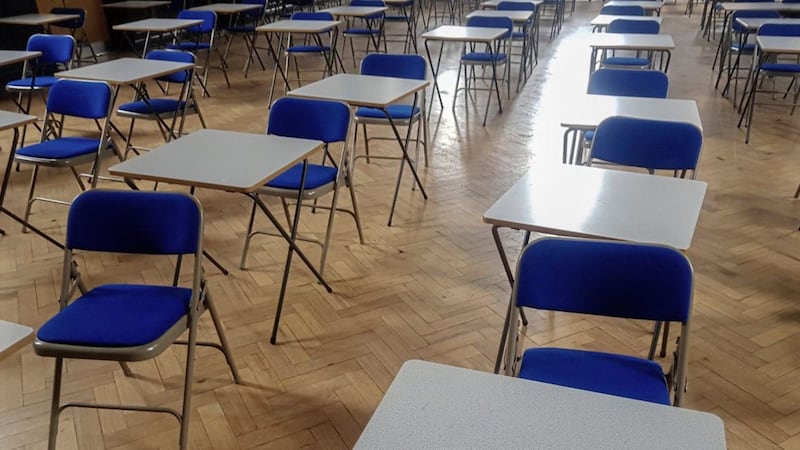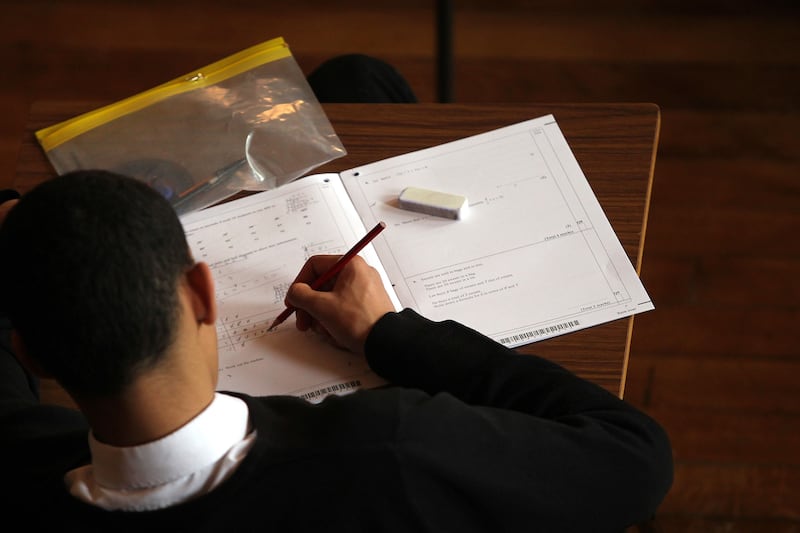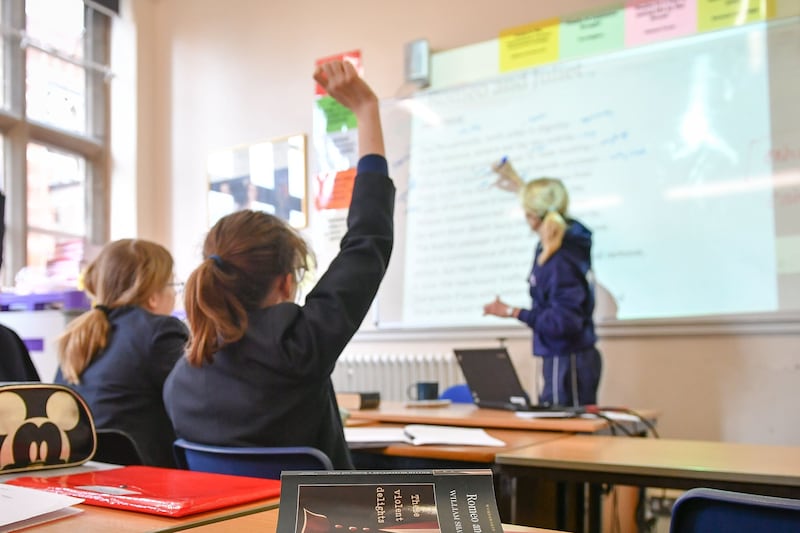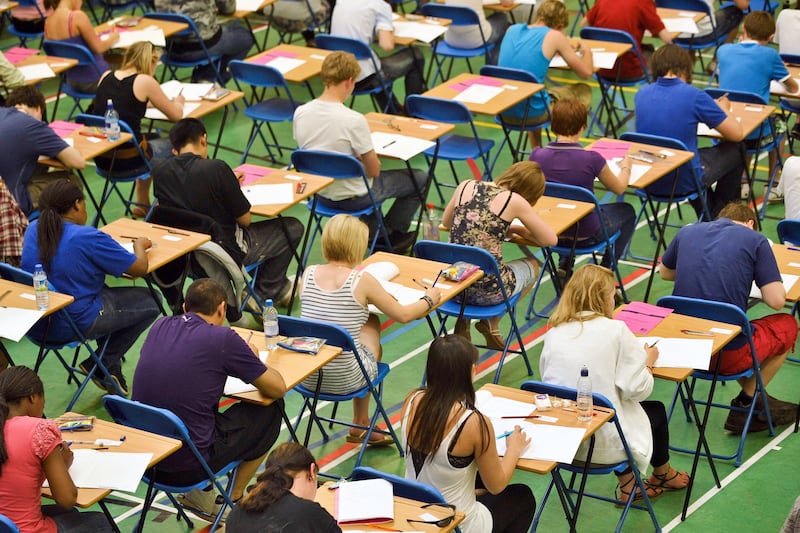GCSE, AS and A-level schools examinations in Northern Ireland will not go ahead this year, Education Minister Peter Weir has said.
Speaking in the assembly this afternoon, Mr Weir said work will continue on the alternative awarding arrangements for pupils, with further details "to be brought forward as soon as possible".
The news comes a day after post-primary transfer tests were cancelled. However, a single AQE test has since been scheduled for February 27.
Some GCSE exams were due to take place next week.
Stormont Education Committee chairman Chris Lyttle responded to Mr Weir, saying it was "absurd" that while GCSE and A-level exams have been cancelled, a post-primary transfer test appears to be going ahead.
"Minister, I respectfully say, you cannot keep washing your hands of this urgent situation.
"We have the absurdity that children and young people will gain admission to university without an exam and you insist that there will be a possibility to sit tests for 10-year-olds. You need to move on, you need to put forward solutions," he told MLAs.
Mr Lyttle also urged that there be "no repeat of the grading fiasco over which he (Mr Weir) ministered in summer 2020".
The exams have been called off amid stricter lockdown measures to stop a rise in transmission of coronavirus.
Mr Weir last night confirmed that schools will largely close to pupils until mid-February.
This morning Stormont's chief scientific adviser Professor Ian Young attributed the rise in Covid-19 cases mainly to increased socialising before fresh lockdown measures were brought in after Christmas rather than the virus mutation prevalent in southern England.
Prof Young said: "The existing mitigations need to be adhered to particularly carefully to reduce transmission of the virus."
The reproductive rate of the virus is approaching 1.8 and hospitals are at full capacity.
Deputy First Minister Michelle O'Neill this afternoon opened her statement to the assembly on the latest coronavirus restrictions by describing being in the middle of the biggest public health crisis in living memory.
She confirmed the new measures would include remote learning for schools, limited contact in domestic settings and statutory measures to support the stay-at-home message.
"Our priorities remain unchanged, we are committing to saving lives, protecting our health service from being overwhelmed and doing all that we can to reduce the spread of this deadly virus," she said.
She said a Covid task force has been established to manage the response to and recovery from the pandemic.
Ms O'Neill said children had been under pressure over the last year and denied the opportunity to mix with their peers.
She said youngsters had been "left hanging" and not knowing if they will have to sit transfer tests for grammar schools.
First Minister Arlene Foster said the R rate of spread of the virus was towards the upper end of that predicted, nearing 1.8.
She repeated that the last two weeks of January could see a peak in hospital admissions.
"It is a very concerning time and we will need to get through this."
Ms Foster said the number of people who had received vaccines was encouraging.
"While these programmes grow and expand it is necessary to put additional restrictions in place on the substantive steps we took last year and in December in particular," the First Minister said.
"We will be asking everyone to help us get through the next period of time by complying with the public health messaging and by adhering to the full range of restrictions because it is never mattered so much.
"We're also asking schools, teachers, parents, children and the wider education community to take very difficult steps now.
"We have been there before and we have won, and we've made it a priority to avoid impacting on schools again unless it was absolutely vital to do so.
"Unfortunately its not possible to protect the health service and keep people safe without taking steps now with schools."
Ms Foster said the health situation was grave and the Executive's decisions were essential.
"We have to make space for the health service to deal with the serious rise in case numbers, and as always we pay tribute to everything that our health and social care colleagues are engaged with to keep us safe and to save lives."
She added: "This is our way out of Covid-19 but we are not there yet."








